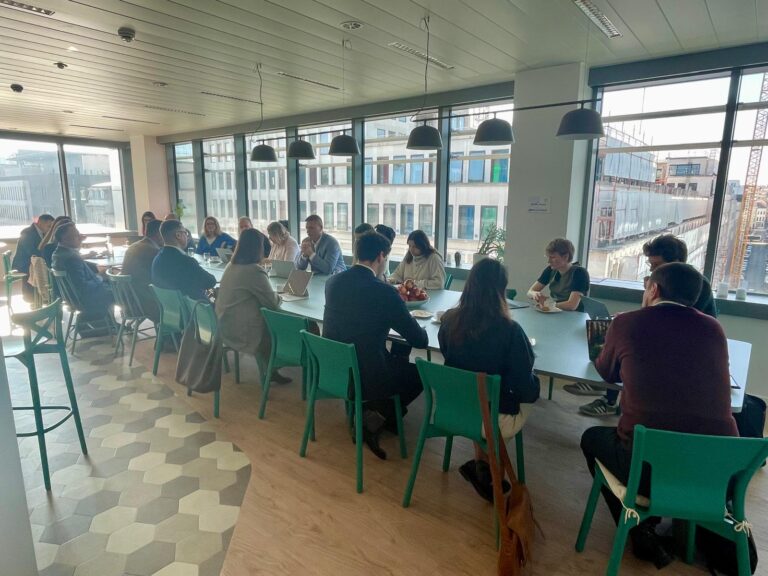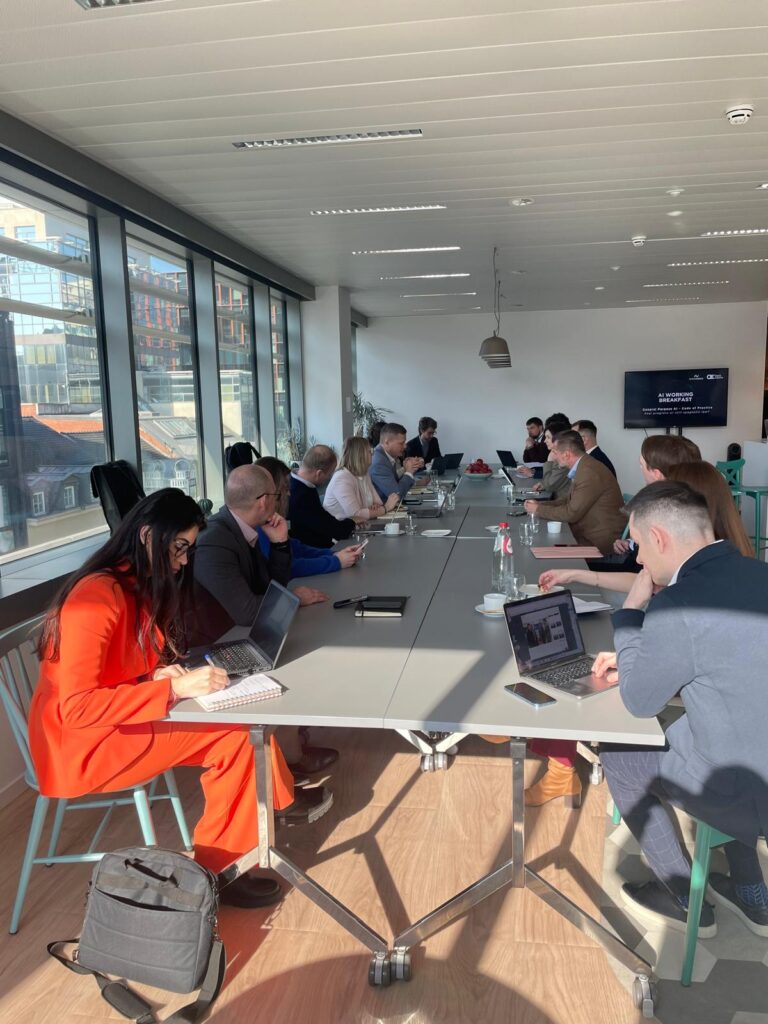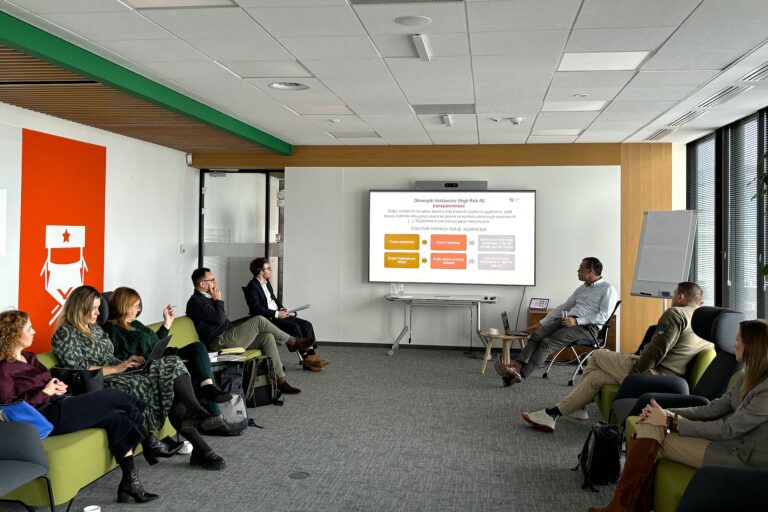AI Chamber Working Breakfast on GPAI Code of Practice – Brussels, March 27


“Real progress or still spaghetti law?”
On March 27th, AI Chamber, in collaboration with CEE Digital Coalition, hosted a high-level Working Breakfast in Brussels, held at the premises of Business Science Poland. The event brought together over 25 participants, including policymakers, PermReps, MEP assistants, legal experts, industry leaders, developers, and civil society representatives, to discuss the Third Draft of the Code of Practice on General Purpose AI (GPAI).

The central question that framed the conversation was both simple and pressing:
“Real progress or still spaghetti law?”
The discussion revolved around the Code’s ability to fulfill its purpose — to help companies achieve compliance with the AI Act (AIA). It focused on five key areas:
- Proportionality & Scalability – Does the draft reflect the diversity of GPAI systems and their risk profiles?
- Implementation Challenges – What practical obstacles might hinder real-world compliance?
- Innovation Impact – Will these rules support or slow down Europe’s AI ecosystem?
- Transparency Mechanisms – Are documentation and disclosure requirements realistic and effective?
- SME Barriers – How can we address the complexity and language barriers for smaller companies?

Thanks to honest, Chatham House-rule feedback from participants, the discussion was open, constructive, and thought-provoking. While many industry representatives actively voiced their concerns, some policymakers admitted they felt more comfortable sharing views in 1:1 conversations — particularly when BigTech was in the room.
Key takeaways:
- There’s a growing appetite in Brussels for diverse input from local industry, especially from underrepresented regions like CEE. Stakeholders are openly skeptical of dominant BigTech narratives and are eager to engage with the broader EU ecosystem.
- The Code is seen as a tool primarily targeting BigTech, particularly GPAISRs. However, its spillover effects on SMEs should not be underestimated. There’s a need to communicate how it may shape compliance expectations across the board.
- Concrete, technical feedback is more impactful than generic concerns about “harm to innovation.” Finding specific, credible issues to raise is key to shaping the final draft.
- Smart collaboration yields high ROI. The event was low-cost, powered by our network, and highly effective in terms of insight and influence.
- Quality over speed. Many expect the Code’s timeline to slip — and welcome that if it means a more workable outcome.
- Some participants noted that the training data template currently being drafted by the AIO may end up being even more influential than the Code itself.
At AI Chamber, we’re proud to facilitate open, multi-stakeholder dialogue to ensure that AI regulation in Europe supports both responsibility and innovation.
Thank you to all speakers, participants, and supporters — your insights help shape the future of AI governance in Europe.
· More articles

Start of AI Chamber
The inauguration of the AI Chamber (Chamber of AI) took place in Warsaw, a newly established institution uniting dozens of startups, companies, organizations, and AI NGOs in Poland, and eventually across the entire CEE region. This is an important voice in the community because in a world of misinformation, changing narratives, interests, and, let’s not […]

European AI Act – AI Chamber Members’ Meeting
European AI Act – AI Chamber Members’ Meeting On October 28, 2024, AI Chamber members met to discuss the implications of the AI Act for the AI ecosystem. Led by Mikołaj Sowiński and Michał Kalinowski from the law firm SK&S Legal, the session clarified roles such as suppliers, users, distributors, importers, and authorized representatives under […]


